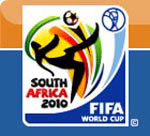Unique concept to preserve World Cup

A joint initiative by the Foundation for Safe South Africa (FSSA), the Local Organising Committee (LOC), Embassy of the Netherlands and Idasa are working hard to ensure that the excitement of the World Cup is transformed into a sustainable commitment to social development in the African continent.
In South Africa, the programme is being operated in 13 disadvantaged communities such as Mamelodi, east of Pretoria, Evaton North, Cosmo City in Gauteng, Upington, Somerset West and East, Siyabuswa in Mpumalanga, Jane Furse in Limpopo, Mogwase in Rustenburg, Umzimkhulu, and Mutare in neighbouring Zimbabwe as well as in Manica, Mozambique.
At each of the 13 youth zones there are three main projects; Football, Computer literacy and Life-skills.
The football focus aims to build the capacity of grass-root teams and support them with football equipment, coaching and organisational growth.
Computer Literacy aims to teach young people how to use a computer and provide participants with internet access so they can have all the educational benefits of the internet and this mainly in areas where there are no libraries or access to information.
The life-skills focus on all those attributes that make an individual successful in life such as communication, conflict resolution, teamwork, responsibility, health and leadership.
Each community is encouraged to launch three 'organic' projects with their own initiative. Some of these small projects include netball, culture, HIV/AIDS, gymnastics, English, entrepreneurship.
The relevance of the projects is to create an enabling environment where young people develop self-belief and confidence to take risks and be creative.
Project leader, Roelf Meyer who is passionate about the initiative said making a sustainable difference in the lives of vulnerable youths is critical; underpinned by the belief that no one is born a criminal.
"The challenge is to prevent those who are born into victim circumstances from becoming offenders. Making choice available in these circumstances can transform lives away from crime to real and legitimate opportunity. We promote safety by proactively investing in society, by stopping crime before it happens," he said.
Project coordinator, Schalk van Heerden said: "It's not about just kicking a ball, it's about the social relations inherent in a team, the family dynamic that provides energy, support and accountability; that's why we use football and even netball teams to learn and become change agents in their communities."
He said the approach is built on a relational model where friendships form the foundation for sustainable actions and programmes.
Van Heerden said the progamme operates in the first sites where the LOC built high-level synthetic football pitches.
One of the members of the youth website, Nelson Veremo said they are encouraged to blog, upload photos, chat and to share both stories of hope and failure.
"Any person can join, boys, girls from any place, it's very interesting knowing we are not alone in our struggles and dreams," he said.
Doctor Mabila from Idasa said participants learn practical things from one another and that the youngsters are proud to share their stories instead of hating each other.
Mabila said they are hoping that when the 2014 FIFA World Cup kicks-off in Brazil, through the Youth Zone Network, they will be able to show the country's shared humanity, mutual learning and care that delivered the diversity and hope of a rainbow nation.
Once real-life friendships have been established and computer literacy is in place, the focus shifts to a virtual community, where besides Skype, Facebook and email, participants interact on the www.youthzones.co.za website.
Other major companies, who also joined forces to ensure that there will be a legacy after the 2010 FIFA World Cup, are Torque IT, Kelly Group, Microsoft, Convergence Partners, SAB, ABI, Khulisa, Fevertree and Heartlines.
























